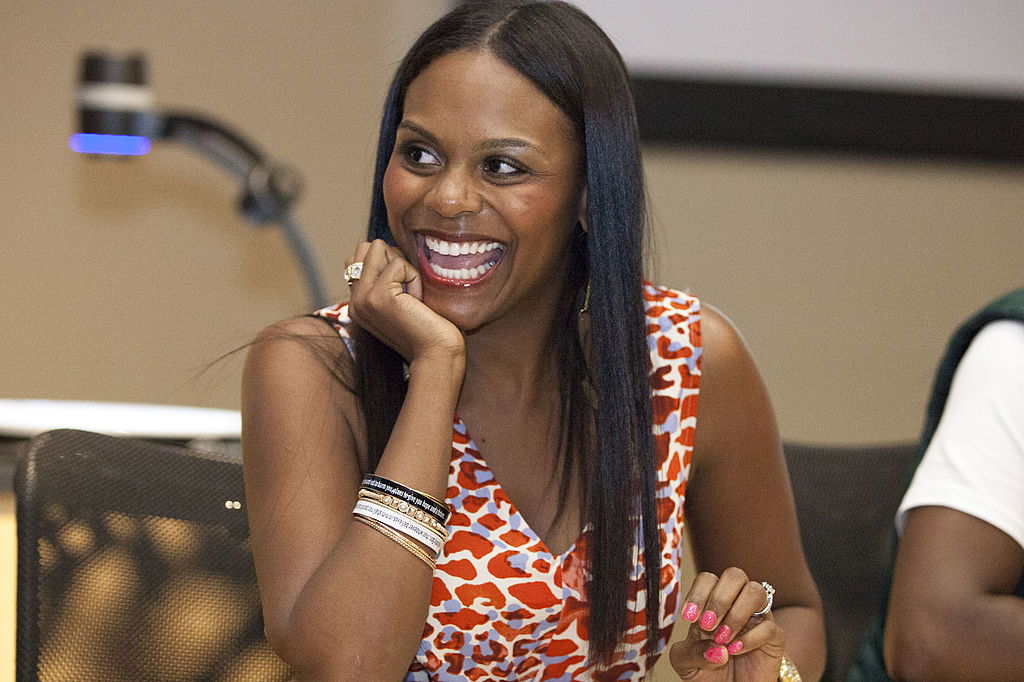The DISC assessment is a popular and powerful behavioral profiling tool designed to improve workplace relationships and communication. Among the four personality types identified in the DISC model—Dominance (D), Influence (I), Steadiness (S) and Conscientiousness (C)—the dominant personality stands out for its decisive, results-oriented nature. Understanding how to effectively communicate with a D personality type is crucial for fostering communication and achieving success in the workplace.

Traits Of A Type D Personality
What is a type D personality? This DISC type is often seen as a go-getter who thrives on results and structure. Type D personality traits include being action-oriented, competitive, direct, driven, decisive, innovative and confident. They tend to be goal-oriented, strong leaders and adept problem solvers. They usually want to deal with issues head-on and expect others to do the same. Type D personalities can sometimes clash with others if they feel things are not moving forward fast enough. This personality is classified as dominant in the DISC framework, meaning they exhibit distinct traits that influence their behaviors and interactions. Understanding these type D personality characteristics can help you tailor your communication approach.
Motivators
Dominant personalities are highly goal-oriented and feel good when they achieve results they can see. They excel in competitive settings and are motivated by challenges that give them opportunities to demonstrate their competence. They value efficiency and actions that lead to quick progress. Autonomy and advancement are strong motivators for a dominant DISC personality. Giving this personality room to operate independently, providing opportunities where they can solve problems and make decisions, or giving them work that challenges them, can be beneficial.
Stressors
Type D personalities are frustrated by inefficiency, delays and ambiguity. They prefer clear goals and direct communication and may become impatient with overly detailed or drawn-out processes. A lack of structure or focus can also create tension for them. Not having control or independence over their work can also be a source of stress.
Behaviors
In group settings, type D personalities naturally lean toward leadership roles. They tend to take charge and control decisions and actions. They may work quickly and independently and tend to work to overcome obstacles. They also like to initiate change. Their communication style is confident and straightforward, preferring results over diplomacy. While their directness can come across as blunt, it comes from their focus on efficiency and reaching goals.
Communication Styles Of Type D Personalities
In workplace settings, type D personalities tend to:
- Use concise and straightforward language.
- Focus on facts and results rather than emotions.
- Prefer quick, actionable discussions over lengthy conversations.
- Expect others to meet their high standards of performance.
- Value autonomy and expect others to take initiative.
- Appreciate brief, data-driven updates instead of detailed explanations.
- Seek clear, goal-oriented communication without unnecessary context.
- Demonstrate urgency and expect similar responsiveness from others.
Tips For Communicating With A Dominant (D) Personality
Understanding how to connect with type D personalities can make all the difference in your workplace. These individuals often lead teams, make decisions and drive projects forward. When you know how to communicate effectively with them, you’re not just avoiding misunderstandings—you’re building a powerful working partnership.
Type D personalities value clarity and efficiency, so getting to the point quickly earns their respect. Showing that you’re focused on results creates mutual trust and makes collaboration smoother. When you adapt to their style, you reduce friction and work to their strengths. Their decisiveness and drive can inspire teams and push projects to success, making it essential to have that positive working relationship. Effective communication with type D personalities isn’t just about making things easier—it’s about achieving better outcomes together. Here are 10 tips for working effectively with a D-type personality:
1. Be Clear And Direct.
In a DISC assessment, type D personalities show they value clarity and directness. Avoid vague language and get straight to the point. For example, instead of saying, “Let’s discuss the proposal,” you could ask: “What are some key ways we could improve the proposal?’
2. Focus On Results.
Ensure your communication is centered around goals, outcomes and the value the person’s ideas or actions bring. When giving recognition, you might focus on ideas they’ve implemented and the results they achieved.
3. Set Clear Goals.
Establish specific, measurable objectives and communicate deadlines clearly. Since D-types appreciate successful outcomes, tying specific goals back to the desired results of larger objectives can also be helpful.
4. Be Prepared.
Have your facts, data and key points ready to present. Type D personalities appreciate well-organized, to-the-point presentations. Plan to stick to agendas and address issues clearly.
5. Respect Their Time.
Keep meetings and conversations brief and focused. Avoid unnecessary small talk.
6. Show Confidence.
Assertiveness and confidence resonate well with D personalities, so avoid hesitancy or indecision.
7. Offer Solutions, Not Problems.
When discussing challenges, present actionable solutions rather than dwelling on the issues.
8. Give Them Autonomy.
Type D personalities prefer autonomy in decision-making. Avoid micromanaging or over-explaining.
9. Adapt to Their Pace.
Match their sense of urgency and work style to establish a good working rapport.
10. Provide Feedback Sparingly.
Offer constructive feedback focused on results and improvements, but do so with precision and respect. For example, if a salesperson falls behind in their quota, you can acknowledge what they’ve done that has been successful and clearly and concisely give feedback on what is needed to reach the goal.
Things To Avoid
When working with D personalities, a few communication pitfalls to avoid include:
- Avoid vague communication or unclear expectations.
- Avoid unnecessary delays in communication or next steps.
- Don’t make interactions too personal or based on emotion.
- Avoid assuming their assertive behaviors are rude or unkind.
How to Manage Conflict With A Type D Personality
Conflicts can arise when working with people who have type D personality traits due to their assertiveness and high standards. Here are some ways to effectively manage and avoid conflict:
- Stay Calm and Objective: Avoid reacting emotionally to their bluntness.
- Keep Emotions in Check: Type D personalities can be very focused on achieving results, and they may not be as sensitive to emotional expressions. Keeping your emotions in check can help prevent escalation.
- Address Issues Directly: Confront conflicts head-on but with respect and professionalism.
- Focus on Solutions: Emphasize practical steps to resolve the issue.
- Acknowledge Their Perspective: Validate their concerns while presenting your viewpoint.
- Set Boundaries: Be clear and firm about your own limits and needs.
- Be Clear and Concise: Type D personalities value directness and clarity. Make sure your communication is straightforward and to the point, avoiding unnecessary details.
- Show That You Value Their Time: Be mindful of their time by being punctual and organized in meetings or discussions.
How Other Personalities Interact With D Styles
Every personality is different and complex, but there are a few commonalities among interactions between the types. Use these tips as the basis to explore how specific personalities can best work with D types.
- Steadiness: S personalities tend to dislike conflict, so they may want to work on discussing conflict with D types in a clear, concise and head-on manner.
- Influence: I types may want to communicate with D styles without excess emotion. I types can also give clear details surrounding their creative ideas.
- Conscientiousness: C types can be deep thinkers, so finding ways to communicate quickly and clearly to D types can be beneficial.
Foster Communication & Collaboration With D Personalities
Understanding and adapting to the communication preferences of DISC D personalities can lead to stronger, better workplace relationships. By recognizing their traits, respecting their communication style and implementing effective strategies, you can create positive relationships with a DISC-dominant personality that achieves consistently good results.
To learn more about DISC personalities, how to interpret the results and the overall workplace benefits, consider exploring additional resources such as the DISC assessment. This will help you to gain insight, not only into how individuals perceive the world and interact with others but also into their specific approach to tasks. By using these insights, you can build mutual respect and improve communication.
Photo by JLco Julia Amaral/Shutterstock




